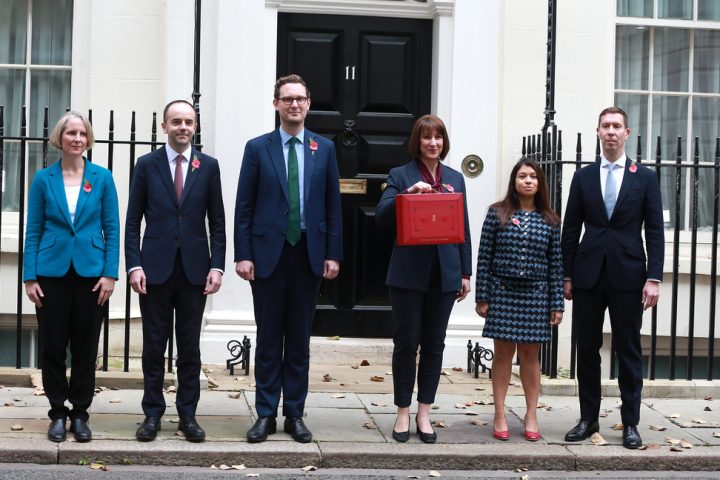The ongoing London Underground strikes, combined with the contentious debate over the Employment Rights Bill, have placed Prime Minister Keir Starmer’s government under intense scrutiny. As of September 8, 2025, No. 10 has publicly supported London commuters affected by the disruptions while urging Mayor Sadiq Khan to intervene, highlighting tensions between labour unions, local authorities, and central government.
Simultaneously, Starmer faces pressure to uphold robust worker protections amid business backlash against the flagship legislation. This article examines the tube strikes’ impact on daily life and the economy, the political dynamics surrounding Sadiq Khan, and the Employment Rights Bill’s implications for growth and labour relations, providing a detailed overview of these interconnected issues.
The London Tube Strikes: Disruption and Government Response
Immediate Impact on Commuters and Businesses
The London Underground strikes, initiated on September 1, 2025, brought the capital’s transport network to a standstill, affecting millions of residents and visitors. Services on key lines, including the Bakerloo, Central, and Piccadilly, were halted for four consecutive days, with further disruptions expected until September 5.
Commuters faced severe challenges, with parents struggling to transport children to school and workers navigating alternative routes or remote work options. The Night Time Industries Association estimated potential revenue losses of £150 million for the hospitality sector alone, while UKHospitality projected up to £110 million in costs for businesses reliant on evening and weekend trade.
Kate Nicholls, chair of UKHospitality, emphasised the broader ramifications: “Consumers will be forced to change or cancel their plans, impacting sales, and many hospitality teams will have difficulty making it to work. This level of impact comes at a time when businesses can least afford it, having just been hit with £3.4 billion in additional annual costs.”
The strikes exacerbated existing pressures on small and medium-sized enterprises already grappling with inflation and post-pandemic recovery. Train drivers in London earn an average of £71,000 annually, with some operators exceeding £100,000, while general staff average £44,000—figures that underscore the disparity fuelling the dispute but also highlight the high operational costs of the network.
No. 10’s Intervention and Call for Resolution
In response, No. 10 firmly backed “fed up” Londoners, with the Prime Minister’s spokesman stating on September 2, 2025, that the government agrees with public frustration over the “disruption from tube strikes.” The spokesman highlighted the practical hardships, noting, “RMT and TfL need to get back around the table, work together to resolve this dispute in the interests of passengers.”
This marked a rare direct intervention from central government into a local transport issue, emphasising the need for Transport for London and the Rail, Maritime and Transport Union to negotiate in “good faith.”
The government’s position aligned with broader calls from business groups for swift resolution, but it stopped short of direct involvement, deferring to Khan as TfL’s chair. This approach reflected Starmer’s strategy to balance support for workers’ rights with economic stability, avoiding escalation in a politically sensitive area. The strikes, which began amid rising inflation and cost-of-living concerns, amplified public discontent, with social media platforms flooded by complaints from affected commuters.
Sadiq Khan Under Pressure: Political and Electoral Implications
Khan’s Response and Public Silence
Sadiq Khan, London’s Mayor and TfL chair, faced mounting criticism for his limited public engagement during the strikes. As of September 8, 2025, Khan had avoided media appearances, issuing statements through spokespeople that emphasised the desire to minimise disruption.
A TfL spokesperson reiterated, “Nobody wants to see strike action or disruption for Londoners. Strikes have a serious impact on London’s businesses and commuters. The Mayor continues to urge the RMT and TfL to get around the table to resolve this matter and get the network re-open.”
TfL’s latest offer included a 3.4% pay rise, described as “fair” and “affordable” given the organisation’s financial constraints, including a £1.2 billion funding gap projected for 2025–26. However, RMT members demanded more, focusing on “fatigue management” and “extreme shift patterns,” including a reduction in the working week from 35 to 32 hours. TfL rejected this, citing annual costs of tens of millions of pounds, which would strain an already subsidised system reliant on government grants.
Khan’s handling of the crisis drew accusations of inaction, with Conservative critics labelling it a failure of leadership. The strikes undermined Khan’s 2021 electoral pledge to end tube disruptions, a promise made amid previous RMT actions. With the next mayoral election in 2028, this episode could erode his support base, particularly among commuters and business leaders who view the strikes as symptomatic of broader transport inefficiencies.
Broader Political Ramifications
The government’s urging of Khan reflected inter-party tensions, as Labour’s central leadership sought to distance itself from local governance failures. Shadow Transport Secretary Helen Whately criticised Khan, stating, “Londoners deserve better than repeated strikes under Labour’s watch.”
This political manoeuvring came as Starmer navigated a delicate balance between union support—crucial for Labour’s base—and economic recovery priorities. The strikes’ timing, coinciding with the school year’s start and post-summer travel peaks, amplified their visibility, pressuring Khan to broker a deal before further reputational damage.
The Employment Rights Bill: Starmer Backs Unions Amid Business Backlash
Key Provisions and Proposed Amendments
Parallel to the tube strikes, the Employment Rights Bill—Labour’s flagship legislation led by former Deputy Prime Minister Angela Rayner—sparked intense debate. The 200-page bill, introduced in July 2025, aimed to enhance worker protections, including day-one rights against unfair dismissal (replacing the current two-year qualifying period) and reforms to zero-hours contracts, guaranteeing hours after three months for part-time workers.
Other measures targeted “fire and rehire” practices, collective bargaining, and family leave expansions. The House of Lords proposed amendments to soften these reforms, such as delaying unfair dismissal rights and weakening zero-hours guarantees, prompting strong opposition from No. 10.
On September 3, 2025, the Prime Minister’s office confirmed that Labour MPs would be whipped to defeat these changes when debated in the Commons. This stance aligned with union demands but ignited backlash from business groups, who argued the bill imposed excessive red tape.
Union Pressure and Government Reshuffle Fallout
Trade unions mobilised against any dilution, with Unison’s Christina McAnea warning that weakening the bill would be a “huge mistake,” especially after a government reshuffle on August 31, 2025, removed key proponents like Employment Minister Justin Madders.
McAnea noted, “It doesn’t send out a very good message that the people who were absolutely committed to driving through the employment rights bill are no longer doing those jobs.” Unite’s Sharon Graham threatened disaffiliation from Labour if the bill was compromised, with a vote scheduled for the Trade Union Congress in Brighton this week.
Labour backbenchers echoed these concerns, fearing delays could expose the bill to further amendments. Madders, now a backbencher, expressed disappointment but vowed to push for its manifesto-aligned passage. Senior officials, including Starmer and Business Secretary Peter Kyle, prepared to address TUC delegates, where motions on the bill would dominate discussions.
The government’s pro-union tilt reflected Labour’s reliance on union donations and voter support, but it risked alienating business allies.
Business Lobbying and Economic Concerns
Business groups intensified lobbying, with Shadow Business Secretary Andrew Griffith urging Kyle to prioritise the “national interest” in a letter dated September 2, 2025. Griffith, representing UKHospitality and the British Retail Consortium, called for the bill’s shelving, arguing, “Any credible ‘reset’ of this government requires that this Bill be shelved and the government look afresh at measures to promote growth and competitiveness of the UK economy.”
Surveys indicated SME fears of £5 billion in annual compliance costs, with the Office for Budget Responsibility warning of a “net negative effect” on growth and employment in its March 2025 Spring Statement analysis.
The government countered that the bill was “pro-growth” and “pro-worker,” enhancing productivity through better job security. However, the OBR’s limited assessment, due to the bill’s evolving details, underscored uncertainties ahead of the November 2025 Autumn Budget. Implementation delays, potentially until 2026, could mitigate short-term impacts but prolong lobbying battles.
Interconnected Issues: Strikes, Rights, and Economic Stability
Tube Strikes and the Employment Rights Bill Link
The tube strikes and Employment Rights Bill were symptomatic of broader labour tensions in the UK economy. RMT’s demands for better hours and fatigue management mirrored the bill’s focus on zero-hours and dismissal protections, highlighting unions’ push for systemic change.
The strikes’ £260 million combined economic hit illustrated the bill’s potential costs, with businesses warning of similar disruptions if regulations burdened operations. Starmer’s support for unions in both contexts signalled a worker-centric agenda, but at the risk of alienating employers amid sluggish growth, with GDP forecast at 1.8% for 2025.
Khan’s predicament exemplified local-central divides, as TfL’s funding woes—exacerbated by a £3.4 billion annual cost increase—limited concessions. The strikes breached Khan’s no-disruption pledge, potentially damaging his 2028 re-election prospects, while Starmer’s intervention shielded national Labour from blame.
Broader Economic and Political Ramifications
The disputes could influence the Autumn Budget, with OBR projections factoring in the bill’s impacts. Unions’ TUC motions may pressure Starmer to accelerate reforms, while business surveys flagged SME vulnerabilities to red tape. Griffith’s call for a “reset” resonated with Conservative critiques, positioning Labour as pro-union at growth’s expense.
Starmer’s reshuffle, removing Rayner allies, fuelled speculation of internal softening, though No. 10’s whip confirmed commitment. For Londoners, the strikes’ legacy—disrupted commutes and lost revenue—underscored transport’s economic role, with TfL’s 3.4% offer clashing against RMT’s 32-hour week demand. Resolution may require compromise, potentially via phased reforms, to avert further action.







